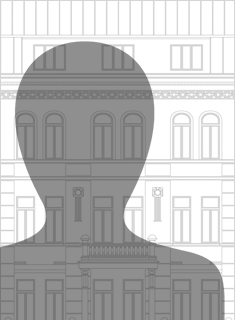Call for Applications for the 2026–2027 Academic Year
The Jan Patočka Fellowship is part of the Jan Patočka Program.
The call for applications is open to scholars in all academic disciplines in the humanities and social sciences. The Jan Patočka Fellowship Program aims to foster research inspired by Jan Patočka’s legacy and his intellectual endeavor to rethink Europe under post-European paradigms. It welcomes scholars working on the manifold philosophical, societal, economic, geopolitical, and historical dimensions of this challenging topic.
As the eponym for this program, Patočka’s critical investigations into the history of philosophy, the meaning of modernity, (post)colonialism, war, technology, and the dialectics of enlightenment offer exemplary––though by no means exclusive––fields of research. The call invites project applications that offer inspiring perspectives on the idea of (post-)Europe and its critical reflection in contemporary debates.
Conditions
The selected candidates will be invited to spend a term of five consecutive months at the IWM in Vienna between September 2026 and June 2027 in order to pursue their research projects as Jan Patočka Junior Visiting Fellows.
Postdoctoral candidates who have defended their PhD by the date of the fellowship application deadline will receive a stipend of EUR 3,300 per month; candidates currently pursuing their doctoral degree will receive a stipend of EUR 2,750 per month. From the stipend, visiting fellows are responsible for covering all living expenses during their research term, including travel to and from Vienna, accommodation costs, health insurance, utilities, local transport, telecommunications, etc., as well as research costs (i.e. for literature, conference fees).
Fellowships start on the first day of the first month and end on the last day of the last month of the fellowship period.
The IWM provides visiting fellows with office space, internet access, in-house research facilities, and administrative services, all free of charge. The visiting fellows will join the IWM community of scholars and are invited to participate in the activities of the Institute.
Eligibility
Candidates for the Jan Patočka Junior Visiting Fellowship must be enrolled in a doctoral program in the humanities or social sciences, or have obtained a PhD in the same fields not longer than four years previously at the time of the application deadline (not before 10 February 2022).
We do not accept multiple fellowship applications from the same candidate within the same academic year. Candidates who have previously received a resident IWM fellowship must wait two academic years before applying for another fellowship. Recipients of a specific IWM fellowship cannot reapply for the same program.
How to Apply
Applications must be submitted through the online application form, which is accessible by clicking on the “Apply” button below. We will not consider applications sent via email.
Required materials:
- A brief letter of motivation that addresses how the project would benefit from time at the IWM, its connection to the IWM’s mission and research, and concrete research/writing goals during the fellowship.
- A project description of max. 550 characters incl. spaces
- A project proposal of max. 7,500 characters incl. spaces, containing:
- a) a description of the project’s objectives
- b) a discussion of the current state of research
- c) methods
- d) a work plan
- A curriculum vitae, including a list of publications
Two letters of recommendation from scholars familiar with the applicant’s academic work. Please note that the letters of recommendation need to be submitted directly by your recommenders before the application deadline. Your recommenders will receive an automatic email with a link to a webform after you have submitted your application.
All application materials must be in English.
Important! Attached documents must be combined into a single PDF, as the online submission form only allows for one attachment. File names of attachments must use Latin characters only.
Application Deadline: Tuesday, 10 February 2026, 23:59 CET
Evaluation and Selection Procedures
Applications that meet the formal and thematic criteria of the call will be evaluated, and the finalists will be selected by a jury of experts. Applicants will be notified of the jury’s decision via email by 30 April 2026. The jury is not required to publicly justify its decisions, nor to provide applicants with individual feedback on their applications.
Kasper Nowak
Fellowship Program Coordinator
fellowships@iwm.at
The Czech philosopher Jan Patočka (1907–1977) is considered one of the most important Central European thinkers of the twentieth century. With a few short exceptions, Patočka was banned from teaching and publishing in communist Czechoslovakia. However, he became an intellectual and moral authority, most notably through his legendary underground seminars.
Patočka was a co-founder and speaker of the civil rights movement Charter 77. He died in March 1977 after a series of police interrogations. This program is dedicated to commemorating his name and work.























































